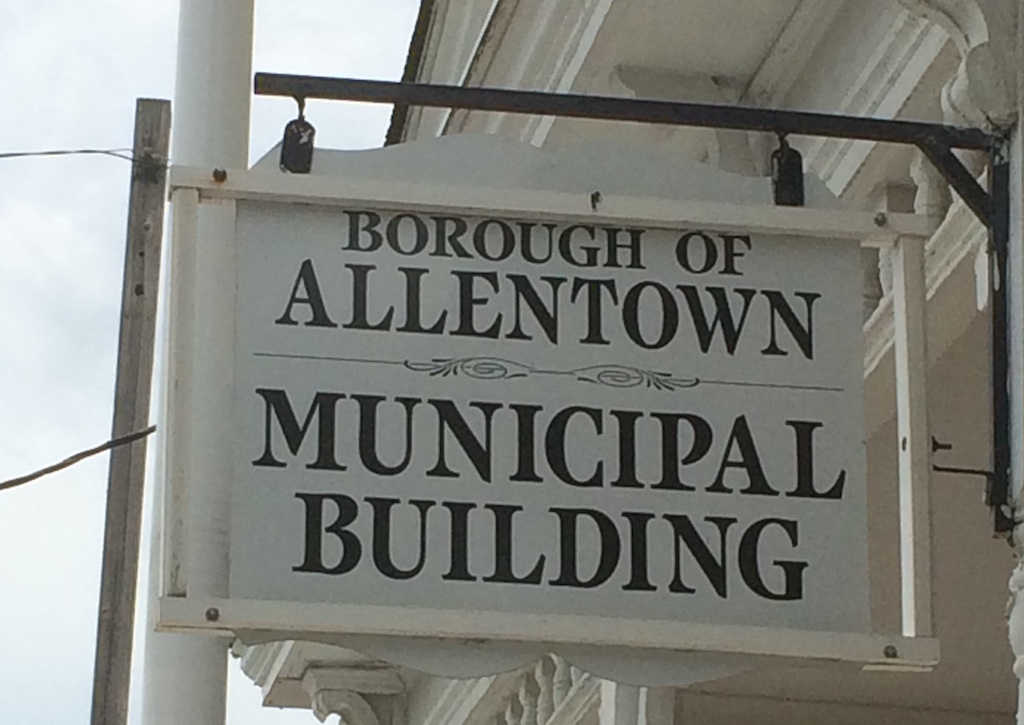ALLENTOWN – With a unanimous vote, members of the Borough Council have adopted a $2.45 million municipal budget to fund the operation of Allentown during 2018. The owner of a home assessed at the borough average of $290,270 will pay $2,322 in municipal taxes in 2018, the same as in 2017.
The budget was adopted by the governing body on April 10 following a presentation by Chief Financial Officer June Madden.
Borough officials will collect the same total amount of money from Allentown’s property owners in 2018 – $1.54 million – as they collected to support the budget in 2017. Other revenues will include $393,000 from Allentown’s surplus fund (savings) and an anticipated $131,595 in state aid.
The municipal tax rate is projected to remain at 80 cents per $100 of assessed valuation. The owner of a home assessed at the borough average of $290,270 will pay $2,322 in municipal taxes. The owner of a home assessed at $200,000 will pay $1,600 in municipal taxes. The owner of a home assessed at $400,000 will pay $3,200 in municipal taxes.
Municipal taxes are one component of a property owner’s total tax bill. Allentown property owners also pay Upper Freehold Regional School District taxes and Monmouth County taxes, among other assessments.
Mayor Greg Westfall noted the municipal tax levy will remain unchanged from 2017 and he said existing services will continue to be provided. In addition, Westfall said the borough’s water and sewer rates will be maintained.
Council President Thomas Fritts said, “Maintaining municipal rates without an increase was critical to the governing body as a whole. Annual assessments have increased over the last couple of years, driving up property taxes, and our residents need a break. As we anticipate a referendum from the Upper Freehold Regional School District and realize many of our seniors are on fixed incomes, council worked together to hold the line.
“Moving our shared court services to Upper Freehold Township allowed us to renegotiate our share from roughly 65 percent to roughly 48.5 percent, showing a significant savings. We were also able to reduce annual employee expenses through new hires and reduce healthcare costs through an opt out program. We are committed to more partnerships with our neighbors when they make sense and to reviewing all expenses to identify future savings,” Fritts said.
Significant increases, which Madden defined as a line item increasing by $10,000 or more from 2017 to 2018, include legal expenses, a police vehicle, a waiver for healthcare costs (offset by a decrease in group life insurance), police salaries and wages, a larger contribution to the Allentown First Aid Squad and police pension costs.
Total personnel costs for the Allentown Police Department amount to $667,756, which is about 27.25 percent of the entire budget. There are six full-time police officers, including superior officers.
Allentown has shared services agreements in place with the Upper Freehold Regional School District (crossing guard), Monmouth County (records information system), Robbinsville (automotive repairs), Upper Freehold Township (construction code official and municipal court services), the Monmouth County Sheriff’s Department (dispatch/911), Plumsted Township (chief financial officer), Upper Freehold Fire Services (fire coverage/inspections), Freehold Township (emergency notification system) and New Jersey SEM (energy aggregation program).
Allentown’s total number of employees in 2017 was 26 and that will remain the same for 2018.
In addition to the 2018 municipal budget, officials have also produced a budget for the water utility, $668,240 (up from $659,076 in 207) and the sewer utility, $1.1 million (up from $798,700 in 2017).
The $301,300 increase in the sewer utility budget is attributable to additional costs of construction administration for renovations at the borough’s waste water treatment plant, and to an Administrative Consent Order the borough has signed with the state Department of Environmental Protection. The consent order includes a fine related to violations at the treatment plant, according to Madden, who said those items are one-time costs.
School taxes account for approximately 63 percent of every tax dollar paid by an Allentown property owner; municipal taxes account for 25 percent; county taxes account for 11 percent; and local open space taxes account for 1 percent, according to municipal officials.

